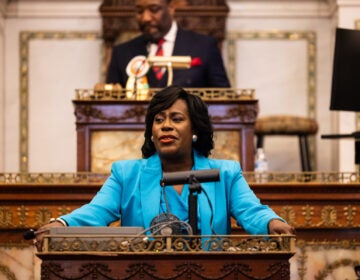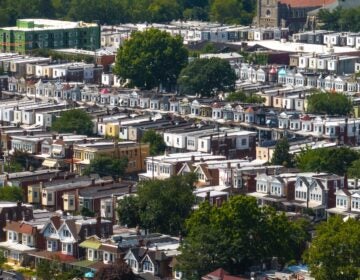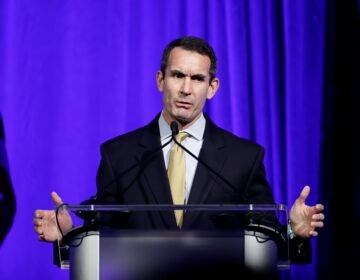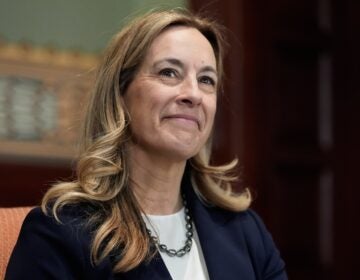Philly ballot measure would send more dollars to city fund for affordable housing
Supporters say the measure closes a loophole created by an incentive program designed to create more affordable housing in the city.
Listen 1:17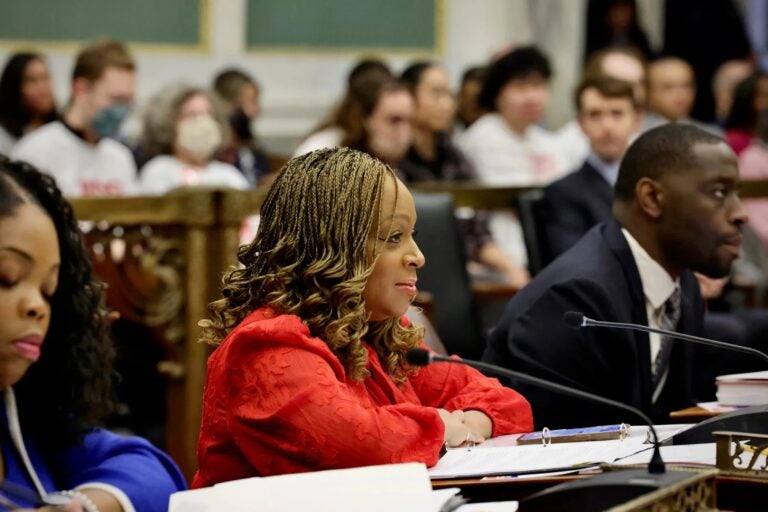
Philadelphia City Councilmember Jamie Gauthier in 2024. (Emma Lee/WHYY)
Have a question about Philly’s neighborhoods or the systems that shape them? PlanPhilly reporters want to hear from you! Ask us a question or send us a story idea you think we should cover.
Philadelphia voters who cast a ballot in this year’s primary election will choose from a list of candidates hoping to become either a judge, the city’s next district attorney or city controller. But they’ll also consider three ballot measures, including one designed to increase the city’s supply of affordable housing amid an ongoing crisis.
The measure effectively seeks to close a loophole created by the Mixed-Income Housing Bonus program, which enables real estate developers to increase the density of certain projects beyond the base zoning by either building price-restricted affordable housing or making a payment to the Housing Trust Fund “in lieu” of building those units.
If the measure is passed, the city would be required to put 100% of those payments into the fund, which is used to help create and preserve affordable housing. At the moment, the city is free to use those funds as they see fit, and the money is routinely used for other budget items.
Backers say the measure, which would amend the city’s charter, would do little more than satisfy the original intent of the mixed-income program, which launched in 2018 to help create more housing, as well as mitigate gentrification and economic segregation.
“This is about making sure that we’re fully funding the trust fund, and making sure that we’re giving communities what they are owed in terms of affordable housing benefits, particularly as neighborhoods change and as many neighborhoods around the city gentrify,” said City Councilmember Jamie Gauthier, who introduced legislation to put the measure on May’s ballot.
The ballot measure is part of a broader legislative campaign aimed at expanding and protecting the city’s supply of affordable housing amid an ongoing crisis. The effort, dubbed “Defying Displacement,” includes legislation designed to cut red tape for real estate developers in the affordable housing space, as well as measures to help low-income renters facing discrimination or struggling to pay their property taxes.
In June, Council passed legislation directing the city to “use best efforts” to redistribute density payments made to the Housing Trust Fund based on the value of those payments and the location of the relevant project. For example, if a developer made a density payment for a project in a council district in South Philadelphia, the hope is that the same amount would go back to that district to help create and preserve affordable housing.
Gauthier views the legislation and the ballot measure as two sides of the same coin.
“There are many neighborhoods where we have a lot of market-rate development happening [and they] deserve to have that development offset with affordability in some proximity. And they deserve to be able to count on that money,” she said.
Under the program, developments can only make payments to the trust fund if they are seeking density bonuses — for more height, units or floor space — for properties with 10 or more units.
Between 2019 and 2023, the mixed-income program generated roughly $36 million for the Housing Trust Fund, according to the city. But only a portion of that total has made it there. The rest remained in the general fund.
Gauthier’s ballot measure is backed by the Building Industry Association of Philadelphia, which represents developers who work in the city.
Mayor Cherelle Parker, who has made housing a top priority, opposes the measure. During a public hearing last May, Finance Director Rob Dubow told lawmakers it would “bind the hands” of any mayor, particularly during budget negotiations, by creating another fixed cost like the city’s pension obligations.
The administration projected the charter change would cost the city’s general fund around $5 million annually and up to $25 million over five years.
The funding would be in addition to the millions the city is already required to send to the Housing Trust fund under a separate charter change. Enacted in 2021, the measure requires at least 0.5% of the city’s annual general fund appropriations to go to the fund.
The measure is likely to pass, however. Philadelphia voters approve the overwhelming majority of ballot measures, striking down just three of them since the 1960s, according to the Committee of Seventy.
Primary Election Day is May 20.

Subscribe to PlanPhilly
WHYY is your source for fact-based, in-depth journalism and information. As a nonprofit organization, we rely on financial support from readers like you. Please give today.





